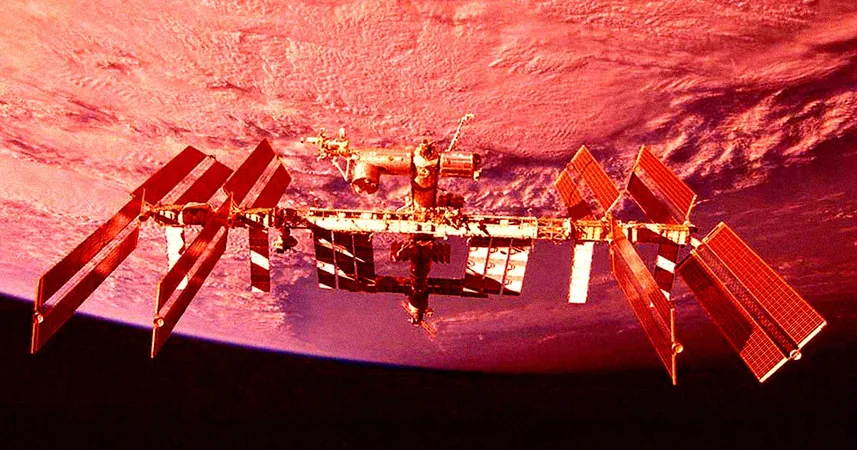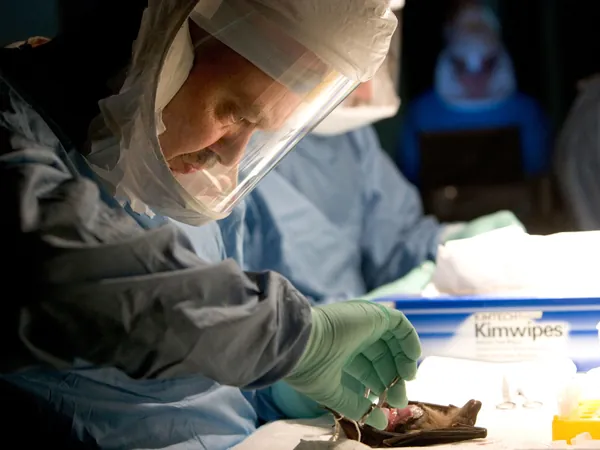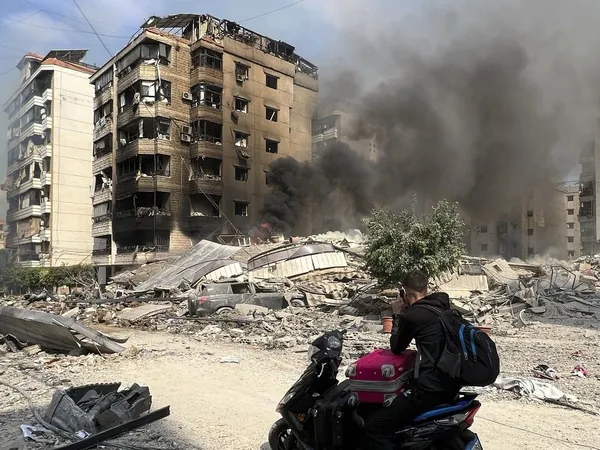
URGENT: NASA Raises Alarm Over Dangerous Leaks in International Space Station - What You Need to Know!
2024-09-27
Crack in the Space Fabric!
A recent investigation by NASA's inspector general has revealed alarming findings about the International Space Station (ISS), specifically concerning a series of potentially hazardous air leaks in the tunnel connecting its Russian module to a docking port. The report highlights a concerning rise in the leak's severity, putting astronaut safety at significant risk.
NASA has reported a stark increase in the leak rate, which reached a worrying 3.7 pounds of atmosphere lost per day in April—up from less than 1 pound in February, according to Ars Technica. The root of this crisis remains shrouded in mystery as experts continue to search for answers, with both NASA and Russia's Roscosmos space agency focusing their investigations on the station's internal and external welds.
A Perilous Future
The implications of these leaks are profound. In June, NASA categorized the issue as the highest level of concern in their risk management system. If these leaks persist without resolution, the agencies may have to close the affected hatch permanently, isolating one of the ISS’s four docking ports—an unacceptable scenario for ongoing missions and scientific endeavors in space.
While Roscosmos expresses confidence in their ability to regulate the hatch before the leak escalates to critical levels, both agencies have yet to reach an agreement on just what constitutes "untenable" leak conditions. With limited operational time left for the ISS, this uncertainty introduces a significant layer of risk into an already fragile mission timeline.
Countdown to 2030: The Final Frontier?
NASA is set to retire the ISS by 2030, a timeline that could potentially be jeopardized by these leaks. The plan involves collaborating with SpaceX to safely deorbit the station and bring it down into the Pacific Ocean. However, whether NASA can sustain operations with Roscosmos beyond 2028 remains an unresolved question.
Compounding these troubles are ongoing supply chain issues that may hinder NASA's contractors' ability to effectively address and repair the leaks. As the inspector general notes, extending the ISS's life past 2030 would require substantial funding and an acceptance of the risks posed by aging components and infrastructure.
What Lies Ahead?
As investigations and repairs are underway, one question hangs heavy in the air: can NASA and Roscosmos come together to solve these critical leaks before they compromise the safety and functionality of the ISS? With the clock ticking down to the decommission date, space agencies around the world are watching closely to see if humanity's legacy in microgravity will end in a crash—or if a new hope will emerge amidst the cracks in the cosmos.
Stay tuned as we continue to follow this developing story, and brace yourself for more shocking updates! Could this be the beginning of the end for the International Space Station?









 Brasil (PT)
Brasil (PT)
 Canada (EN)
Canada (EN)
 Chile (ES)
Chile (ES)
 España (ES)
España (ES)
 France (FR)
France (FR)
 Hong Kong (EN)
Hong Kong (EN)
 Italia (IT)
Italia (IT)
 日本 (JA)
日本 (JA)
 Magyarország (HU)
Magyarország (HU)
 Norge (NO)
Norge (NO)
 Polska (PL)
Polska (PL)
 Schweiz (DE)
Schweiz (DE)
 Singapore (EN)
Singapore (EN)
 Sverige (SV)
Sverige (SV)
 Suomi (FI)
Suomi (FI)
 Türkiye (TR)
Türkiye (TR)